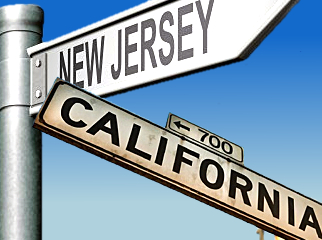 California has made a couple amendments to its proposed sports betting legislation (read the latest update here). First, the bill has reinserted language including satellite wagering facilities among those entities that would be allowed to offer sports wagers, suggesting the removal of said language in early April didn’t go over well with the OTB crowd.
California has made a couple amendments to its proposed sports betting legislation (read the latest update here). First, the bill has reinserted language including satellite wagering facilities among those entities that would be allowed to offer sports wagers, suggesting the removal of said language in early April didn’t go over well with the OTB crowd.
Second, the state has added language that would expand the traditional confines of tribal-state gaming compacts to include sports wagers. Under the revised language of SB 190, the state proposes to adopt a model tribal-state sports wagering compact that would allow federally recognized Indian tribes to launch sports betting operations on tribal land as a form of Class III gaming as defined by the federal Indian Gaming Regulatory Act (IGRA). SB 190 is currently waiting for a hearing with the state Senate Appropriations Committee.
NEW JERSEY BRIEFS CHALLENGE SHIPP RULING
Of course, nothing will happen with California’s sports betting plans until the resolution of New Jersey’s court fight with the US Department of Justice, the four major pro sports leagues and the NCAA to overturn the 1992 PASPA federal sports betting prohibitions. On Monday, briefs supporting New Jersey’s bid to offer single-game sports betting were filed with the Third Circuit US Court of Appeals by (a) New Jersey Gov. Chris Christie and the state Attorney General, (b) state Senate president Stephen Sweeney and Assembly speaker Sheila Oliver, and (c) the New Jersey Thoroughbred Horsemen’s Association.
As summarized by NorthJersey.com’s John Brennan, the Christie brief challenges District Court Judge Michael Shipp’s ruling that the Leagues had established standing to intervene in the case based on the negative impact betting would have on their games’ integrity. The brief argues that the court ignored “undisputed evidence that the Leagues have prospered despite regularly staging games where sports wagering is legal.”
Christie further argued that the Leagues’ integrity claims don’t actually define any concrete harm their games would suffer at the hands of legal sports betting. Christie also challenged Shipp’s determination that New Jersey’s plans would increase the overall volume of sports betting, since “no evidence in the record supported that conclusion. The significance of this error cannot be overstated.”
The Sweeney/Oliver filing focuses on the commandeering clause of the US Constitution and how the federal obstruction of the will of New Jersey legislators and the people that voted them into office have rendered said pols mere “puppets of a ventriloquist Congress.” The horsemen, meanwhile, attack Shipp’s ruling based on its incompatibility with the doctrine of equal sovereignty, namely, “allowing Nevada to expand sports betting at will” and thereby creating “a federally sanctioned billion dollar sports betting monopoly.” The Leagues and the DoJ have until May 23 to respond to the state’s filings, after which the Third Circuit will conduct a hearing in Philadelphia on June 26.
